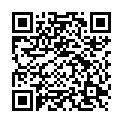|
|
|
| Module code: BAME-111 |
|
4S (4 hours per week) |
|
5 |
| Semester: 1 |
| Mandatory course: yes |
Language of instruction:
German |
Assessment:
Oral exam, module work
[updated 30.07.2021]
|
BAME-111 Health care management, Bachelor, ASPO 01.04.2008
, semester 1, mandatory course
|
60 class hours (= 45 clock hours) over a 15-week period.
The total student study time is 150 hours (equivalent to 5 ECTS credits).
There are therefore 105 hours available for class preparation and follow-up work and exam preparation.
|
Recommended prerequisites (modules):
None.
|
Recommended as prerequisite for:
BAME-313
BAME-414
[updated 12.05.2010]
|
Module coordinator:
Prof. Dr. Martha Meyer |
Lecturer:
Prof. Dr. Martin Knoll
Prof. Dr. Martha Meyer
[updated 12.05.2010]
|
Learning outcomes:
This module provides an overview of major historical-professional developments in nursing and health professions. After successfully completing this module, students will understand the consequences for the development of these professions in the context of other occupational groups and interpret them from a sociological perspective. The legal foundations of the professions are well known and can be explained in the context of professionalization and academization. Current developments in health policy will also be addressed and their consequences introduced into the debate on the professionalization of nursing and healthcare occupations..
[updated 30.07.2021]
|
Module content:
1. Introduction
· Important historical developments
References to other health care and social service professions and organizations.
2. Development of the professional field of nursing
Classification of nursing and health care professions
Regulations and institutions for training
· Regulations, educational institutions
· Approaches to professionalization
3. Nursing care and institutions
National and international professional associations/interest groups
· EG, WHO, ICN: Organization,
· Healthcare policy involvement by nursing and healthcare professions
[updated 30.07.2021]
|
Teaching methods/Media:
Print and electronic media, slides
[updated 30.07.2021]
|
Recommended or required reading:
· Steppe, Hilde: Krankenpflege im Nationalsozialismus. Frankfurt/M. (Mabuse) 2001.
· Wolff, Hans-Peter und Jutta Wolff: Geschichte der Krankenpflege. Basel (Recom) 1994.
· Nightingale, Florence: Bemerkungen zur Krankenpflege. Frankfurt/M. (Mabuse) 2005.
· Ostner, Ilona und Almut Krutwa-Schott. Krankenpflege - ein Frauenberuf. Bericht über eine
empirische Untersuchung. Frankfurt/M. (Campus) 1981.
· Bischoff, Claudia: Frauen in der Krankenpflege. Zur Entwicklung von Frauenrolle und
Frauenberufstätigkeit im 19. und 20. Jahrhundert. Frankfurt/M. (Campus) neueste Auflage.
· Ostner, Ilona und Elisabeth Beck-Gernsheim: Mitmenschlichkeit als Beruf. Eine Analyse des Alltags in der Krankenpflege. Frankfurt/M. (Campus) 1979.
· Robert Bosch Stiftung (Hg.): Denkschrift Pflegewissenschaft. Stuttgart (Bleicher) 1996.
· Robert Bosch Stiftung (Hg.): Pflege braucht Eliten. Stuttgart (Bleicher) 1993.
[updated 30.07.2021]
|


